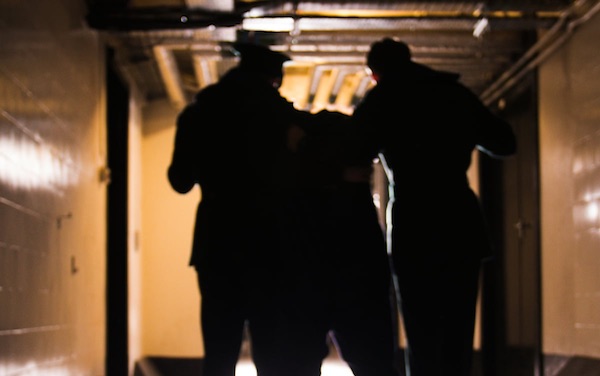
Sinn Féin spokesperson on Justice Martin Kenny has called for an apology by the state and a full independent inquiry into the policing and judicial system in the 26 Counties following an exposé of the Garda ‘Heavy Gang’ in the late 1970s and 1980s.
The infamous police unit forced confessions to illegally convict innocent people, including republicans.
The series of three broadcasts presented clear evidence of an alliance between the non-jury Special Criminal Court and the Special Branch “Heavy Gang” to brutalise, frame and imprison people, simply because of their political beliefs.
The second of three broadcasts detailed the forced confessions of a number of men by Gardaí at the time of the 1976 Sallins train robbery.
Over ten days they questioned, arrested or detained over 40 people, all connected to the Irish Republican Socialist Party. Eighteen of those arrested were targeted for torture to force them to sign incriminating statements.
Mr Kenny said:
“It seems that a small number of this Garda ‘Heavy Gang’ were repeatedly promoted to powerful ranks within the policing service, which gave credibility to the brutal tactics they employed.
“This occurred despite the international outcry at the time from Amnesty International and other human rights organisations.
“Garda management have never acknowledged the use of these tactics, which led to many of the false confessions detailed in this series.
“There are likely to be hundreds of low profile cases around the country where similar tactics were used against often vulnerable individuals over the decades.”
In the case of the Sallins train robbery, the way the trials were conducted laid bare the worst excesses of the Special Criminal Court system.
Two men, Osgur Breatnach and Brian McNally, were eventually released by the Criminal Court of Appeal. Nicky Kelly was eventually released, but only after a number of appeals and high profile campaigns, including a 37-day hunger strike.
His release occurred without an admission from the state that his confession was coerced under forceful means. That vindication only came with a presidential pardon many years later.
“What many arms of the state have failed to acknowledge since this miscarriage of justice, is the toll it has taken on the lives of those wrongly accused,” said Mr Kenny.
“The state has yet to launch a thorough investigation into their own role. I am calling for a full public inquiry into the activities of the Gardaí and the utter failings of the justice system.
“Without learning from these horrifying events, the state risks repeating the wrongdoing of its past.”
Saoradh said that “many people would have been shocked” by the harrowing stories of Garda violence.
“It is sickening to think that those behind behaviour that ruined the lives of those 3 men, their families and many in the community were never brought to justice and in fact, some were promoted.”
They said it would be “a huge mistake” to think that the framing of suspects by the Gardai is a thing of the past.
“In the 12 months running up to the 100th anniversary of the 1916 rising roughly thirty people found themselves up before the non-jury special courts charged with membership of an illegal organisation,” they said.
“The main evidence against these people was the belief “evidence” of a Garda Superintendant or higher. A Garda said you were a member of an illegal organisation and that was that.
“In recent years this so-called evidence was enough to see roughly thirty people convicted of membership and sent to Portlaoise and Mountjoy jails.”
![[Irish Republican News]](https://republican-news.org/graphics/title_gifs/rn.gif)
![[Irish Republican News]](https://republican-news.org/graphics/title_gifs/harp.gif)

